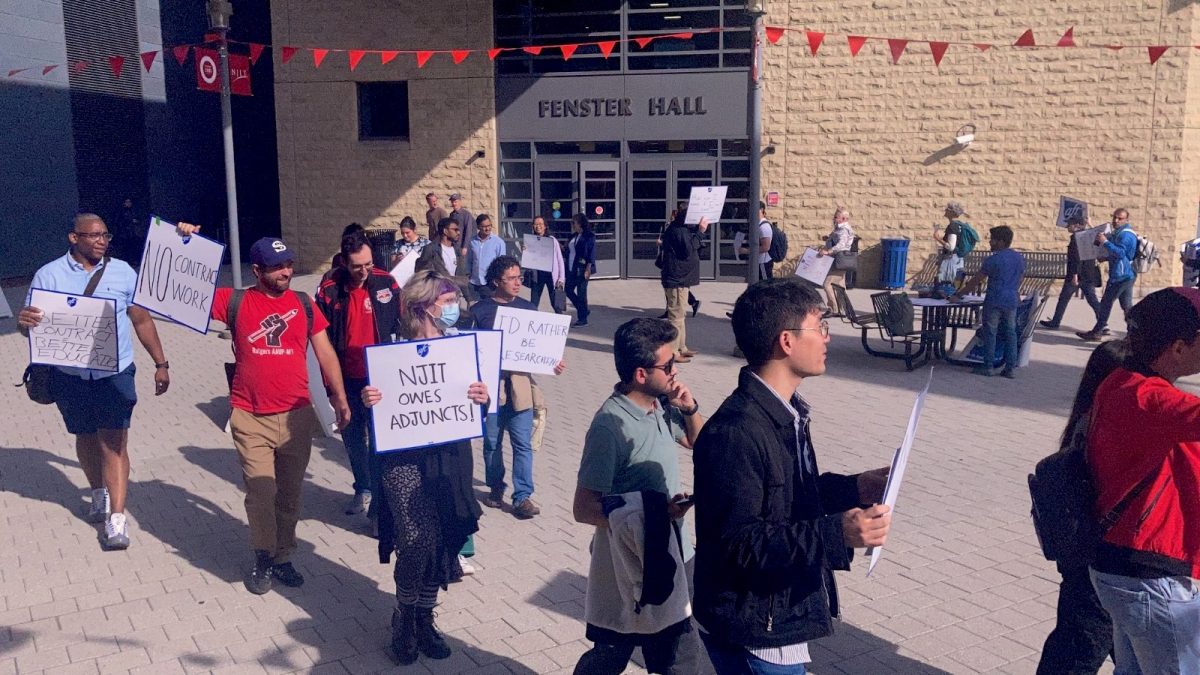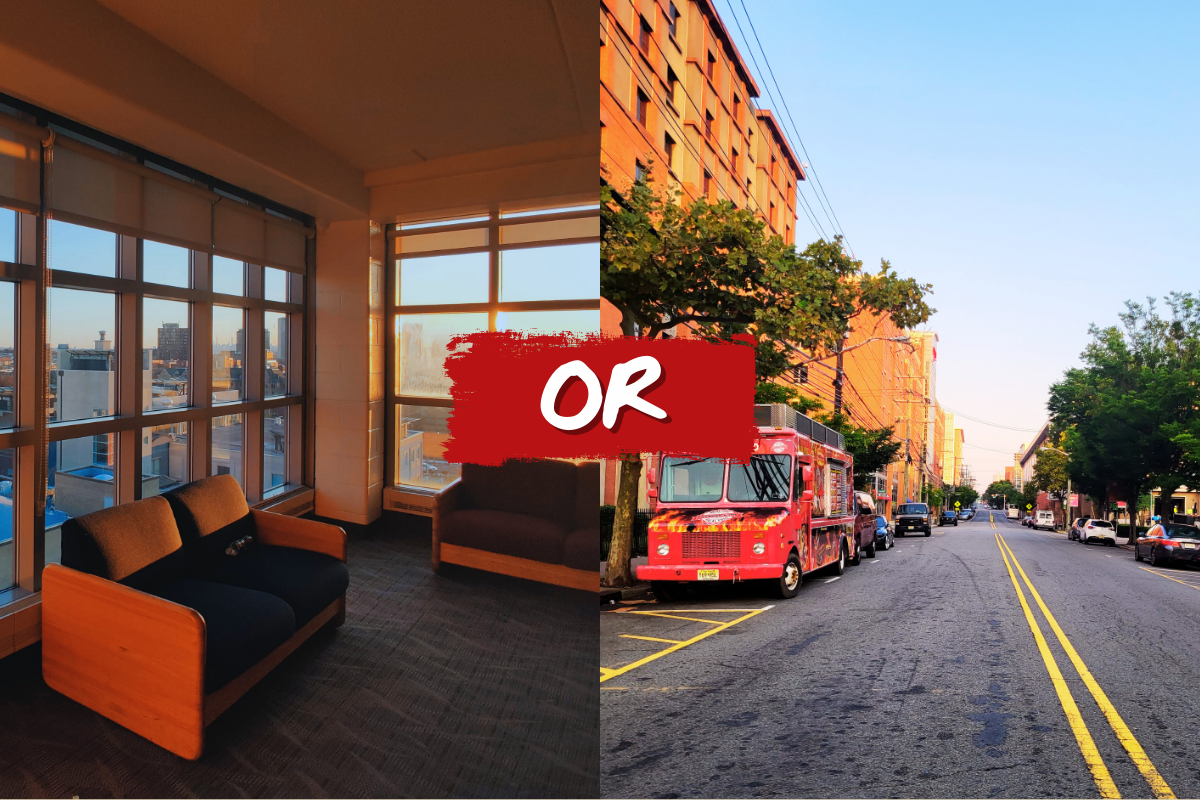The negotiations between NJIT and the union that represents more than 800 teaching and research assistants, post-doctoral fellows, research professionals, and adjunct faculty is entering a new phase now that the university has filed a request for mediation with the state.
This latest development occurred on Oct. 13, when NJIT formally filed a request for a mediator with the state’s Public Employment Relations Commission (PERC). This means it will now be up to the commission if it decides to send in an investigator to determine if the two sides are at an impasse, if it decides to give the negotiations more time, or if it decides to send in a mediator immediately.
Matthew Golden, Vice President for Communications and Marketing at NJIT, provided a statement from the university explaining its decision: “With regard to negotiations to date, many negotiating sessions have been held and the university has extended offers with significant compensation increases, benefit expansions, and other enhancements. Labor representatives also have presented demands, which far exceed our proposals. In order to try to expedite the negotiation process, we have informed UCAN leadership that we want to work with an independent mediator in order to help us reach an agreement on compensation as quickly as possible. We will continue to negotiate non-compensation issues as we move through the mediation process.”
Union leaders are skeptical of the efficacy of bringing in state officials. In an email interview, Brian O’Donnell, president of United Council of Academics at NJIT (UCAN), said: “Our main concern with bringing in a mediator is that we would expect it to slow us down further. They will come in, need to be caught up, then we would need to work out how they want to affect the process.” He is a sixth-year solar terrestrial research Ph.D. candidate.
UCAN and the university have been trying to negotiate a new four-year contract for academic workers for about a year now. The contract expired on July 1, 2022.
Negotiations have been contentious, and that tension was on full display on Sept. 21 of this year, when the union held a rally outside the Agile Strategy Lab of the Central King Building, where the NJIT Board of Trustees was meeting. This led to one of the demonstrators, Nicholas Dubicki, a fifth-year mathematical sciences Ph.D. student, being handcuffed, escorted out of the building, and taken to the NJIT Police Station, where he was issued a summons for disorderly conduct.
Kevin Kesselman, Chief of Police in NJIT’s Department of Public Safety, said that the summons was issued after repeated warnings about disrupting the learning environment. Despite this, within a week, Public Safety was backing away from the summons. “The university is working with the police department to have that summons dismissed, in this instance, because our goal was simply to preserve the educational setting in which our students were learning,” Kesselman said in a Sept. 29 email statement.
The summons — which is essentially a ticket — was officially dismissed on Oct. 11 by the Newark Municipal Court, according to Dubicki.
Nicholas Harty, UCAN graduate executive board member-at-large, called the summons an “intimidation tactic.” The arrest prompted the union to launch a letter-writing campaign to NJIT President Dr. Teik Lim demanding that the charges be dropped; more than 100 letters were sent, he said.
“I was not expecting anyone to be arrested at the rally. … Arresting peaceful protestors is an extreme escalation by NJIT administrators to silence us and prevent future rallies,” stated Harty, a third-year applied mathematics Ph.D. candidate.
Dubicki said he was simply exercising his right to free speech and questioned the message it sent to students who witnessed his arrest. He added: “I would be curious to know where exactly [NJIT Board of Trustees Chair Robert] Cohen believes it is appropriate to raise a voice to university leadership[.] Since I was arrested at a public meeting for the university community to whom he is responsible, and when no apology was offered by leadership, it would indicate NJIT’s position is that [the meeting] is not an appropriate place either.”
Asked to comment, Golden, the university’s Vice President for Communications and Marketing, sidestepped the question of an apology and issued the following statement: “The arrest did not occur at a public meeting of the board. It occurred prior to and outside the meeting within an educational setting that was being disrupted and student learning was being impeded, and members of the university community are able to register to speak at public board meetings, as several members of union leadership did that day, once the meeting began.’’
The Sept. 21 rally was the fifth protest organized by UCAN since Nov. 17, 2022. The most visible one was on April 28 of this year during Lim’s inauguration; protesters began outside the Joel and Diane Bloom Wellness and Events Center and made their way into the building, continuing to chant call-and-response protest slogans. This prompted Lim to begin his speech with an unplanned anecdote that included, “I have a deep appreciation [for] freedom of speech that those protesting today are exercising. What I love about this country is you can celebrate, and you can protest.”
However, Cohen was more critical. In a speech that took place before Lim’s, Cohen commented: “There is a time and a place for voices to be heard. This is not the time nor the place.”

































